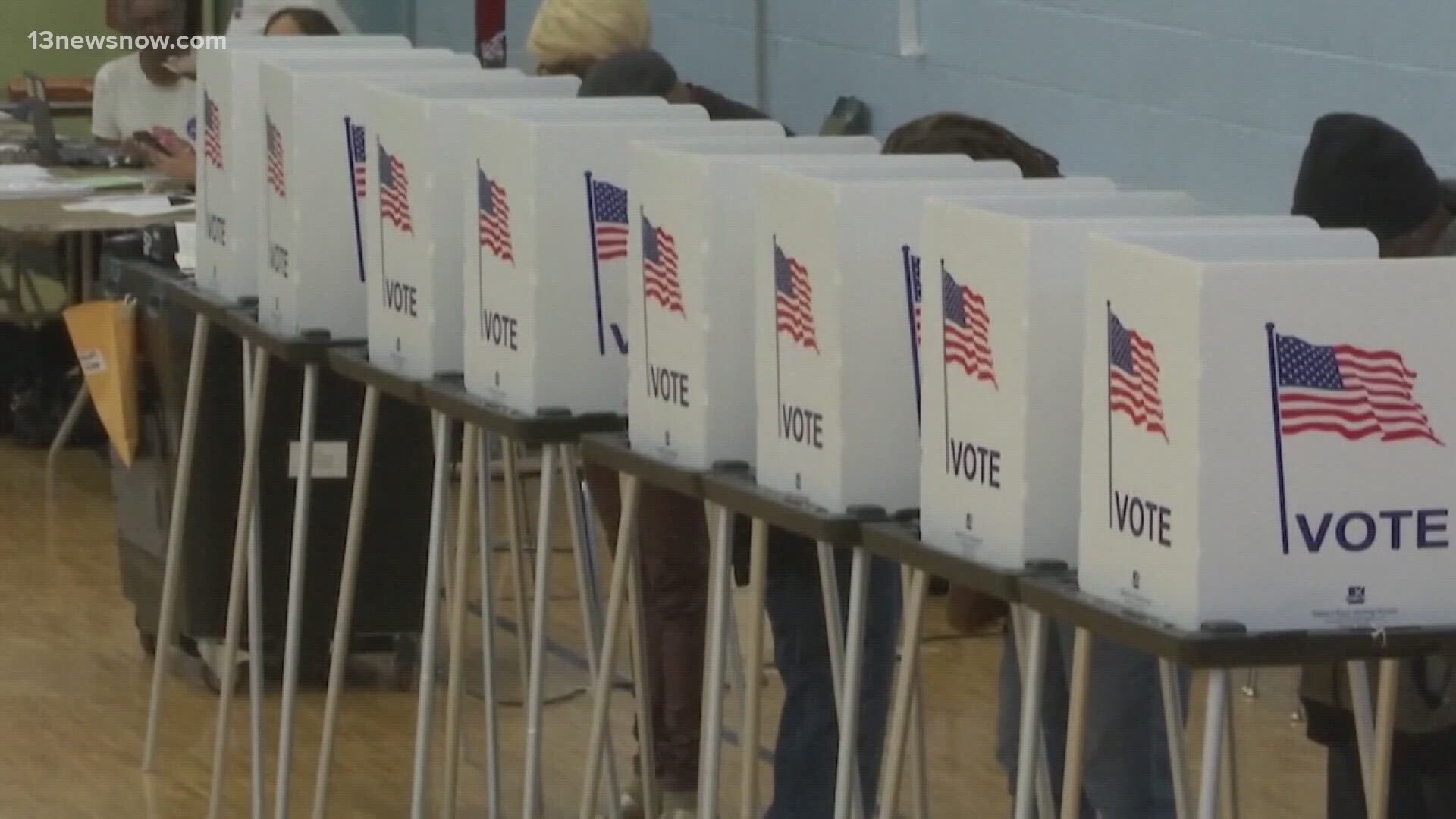RICHMOND, Va. — The Virginia NAACP announced on Tuesday plans to file a lawsuit against Gov. Glenn Youngkin and his administration following calls for him to establish publicly available criteria for restoring the voting rights of Virginians with past felony convictions.
Through the lawsuit, Virginia NAACP aims to obtain public records detailing how Youngkin decides to restore the voting rights of convicted felons. They allege it's illegal for Youngkin to withhold the records since it made a Virginia Freedom of Information Act (FOIA) request in May.
“After multiple requests to the Youngkin administration fell on deaf ears, we must now look to the court system to affirm our rights and the rights of all Virginians to know what is being done behind closed doors," said Virginia NAACP President Robert N. Barnette, Jr. "Virginians of all stripes deserve to know as much as possible about the rights restoration process, including who is in the room, what information is considered, and the criteria used to make decisions that cut to the core of our democracy and ultimately impact tens of thousands of returning citizens every year. This lawsuit is the next step in our fight for transparency and accountability.”
The Virginia NAACP previously claimed Youngkin's process is "arbitrary" and potentially discriminatory.
The organization says there were "key documents" missing from the nearly 600 documents it requested from the governor's office earlier in the year. According to the Virginia NAACP, the documents unaccounted for contained information on the factors used to decide if an application is approved or rejected. Additionally, the governor's office allegedly failed to provide records of meetings and communications about the implementation of the restoration rights and the applications that were denied restoration.
A spokesperson for Youngkin, however, told 13News Now in a statement that the governor's office spent months compiling documents per the NAACP's request.
"As the lawsuit admits, we engaged in a multi-month process with the NAACP with multiple meetings and discussions that culminated in the production of nearly 600 pages of records, some of which the governor was not required to produce under FOIA laws," Youngkin's spokesperson said. "In a good faith effort to work with the NAACP, our office underwent an extensive process to fulfill NAACP's requests. The Governor firmly believes in the importance of second chances for Virginians who have made mistakes but are working to move forward as active members of our citizenry."
Barnette says the NAACP and its attorneys are giving the governor's office three days to respond before filing the formal lawsuit in Circuit Court.
In July, Youngkin's administration said the governor considered some of the circumstances of a felons' crime when deciding whether to restore their right to vote.
"We've been in an investigation for almost an entire year to learn more about that [change of policy], because it really has been a secretive process. He has not shared almost anything publicly about how this process works, particularly the criteria that he uses to determine whether to restore an individual's voting right," said Barnette.
In a letter dated from July obtained by 13News Now, Secretary of the Commonwealth Kay Coles James said the governor is "less likely to quickly restore the voting rights of anyone who used a firearm in the commission of a crime." James added that the governor will "generally speaking, but not always" work to restore the rights of those who committed nonviolent crimes.
"It's imperative that people who have been incarcerated have a right to vote because they are back into society," Barnette said. "Without these documents, we can only conclude that something else is going on behind the scenes."
Barnette says his organization wants this transparency from the governor's office, so that they can also determine if there are any concerns or issues regarding any possible form of prejudice against Black voters.
"Black Virginians are more overly represented in our correctional facilities. So, it impacts Black Virginians more so than any other ethnic group," Barnette said. "We want to make sure that if people have done their time and have applied for the rights to be restored, that either they are given a reason or their rights have been restored."
In Virginia, a felony conviction automatically results in the loss of certain civil rights such as voting, serving on a jury, running for office, or carrying a firearm. The governor has the sole discretion to restore them — with the exception of firearms rights, which only a court can do.
Youngkin's process deviates from a system used by three of his predecessors.

